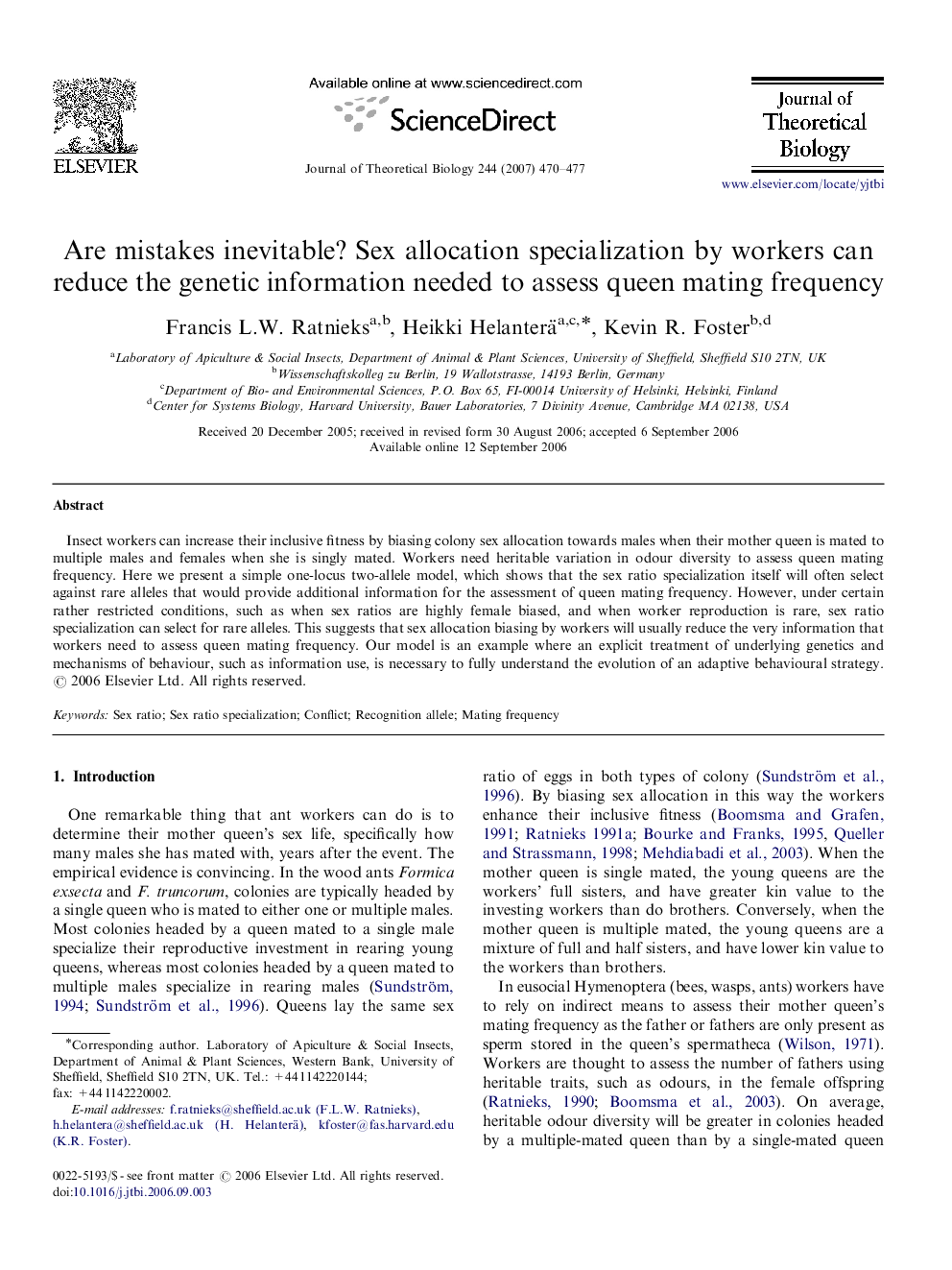| Article ID | Journal | Published Year | Pages | File Type |
|---|---|---|---|---|
| 4499255 | Journal of Theoretical Biology | 2007 | 8 Pages |
Abstract
Insect workers can increase their inclusive fitness by biasing colony sex allocation towards males when their mother queen is mated to multiple males and females when she is singly mated. Workers need heritable variation in odour diversity to assess queen mating frequency. Here we present a simple one-locus two-allele model, which shows that the sex ratio specialization itself will often select against rare alleles that would provide additional information for the assessment of queen mating frequency. However, under certain rather restricted conditions, such as when sex ratios are highly female biased, and when worker reproduction is rare, sex ratio specialization can select for rare alleles. This suggests that sex allocation biasing by workers will usually reduce the very information that workers need to assess queen mating frequency. Our model is an example where an explicit treatment of underlying genetics and mechanisms of behaviour, such as information use, is necessary to fully understand the evolution of an adaptive behavioural strategy.
Keywords
Related Topics
Life Sciences
Agricultural and Biological Sciences
Agricultural and Biological Sciences (General)
Authors
Francis L.W. Ratnieks, Heikki Helanterä, Kevin R. Foster,
